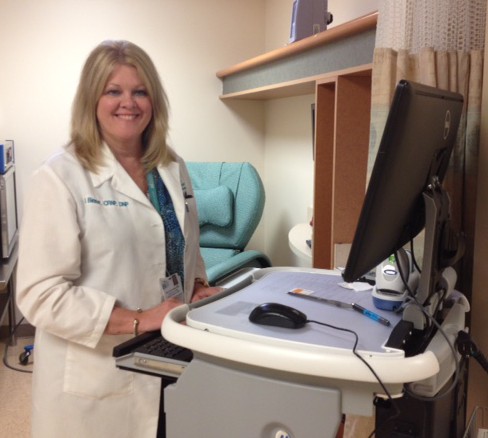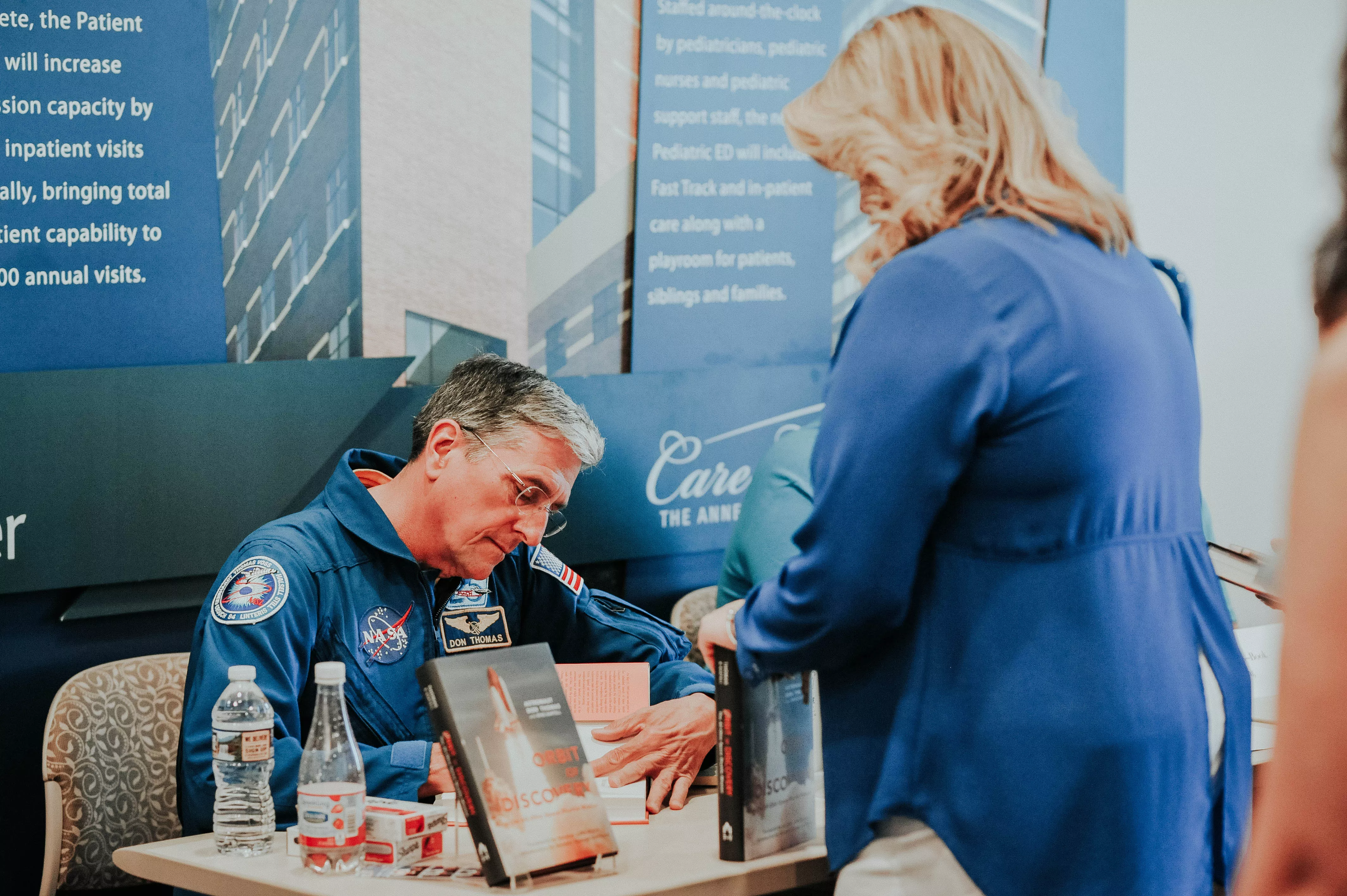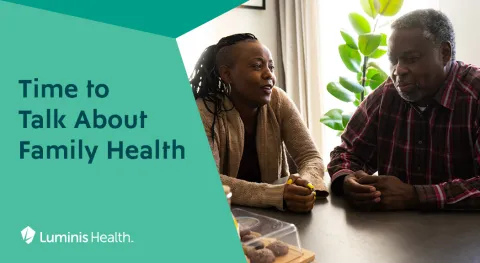“Overcoming obstacles and reaching for the stars” was the message retired NASA astronaut and cancer survivor Don Thomas shared at the 2017 National Cancer Survivorship Day event.
The Anne Arundel Medical Center (AAMC) DeCesaris Cancer Institute hosted the annual event. Don shared his experience of overcoming barriers as the first cancer survivor to go to space. His talk made me think about how patients may feel ‘lost in space’ when navigating the complicated cancer care journey, including survivorship.
The cancer journey includes living with, through and beyond cancer as a chronic disease. Survivorship is a distinct phase of the experience. Here are some experiences people living beyond a cancer diagnosis face and advice to help navigate.
Managing late or long-term effects of cancer or its treatment. Learn as much as you can about self-management of side effects. This promotes your independence and better control over the situation. Consider rehabilitation services to maintain or restore physical abilities or control symptoms. And be sure to ask questions and communicate any concerns with your healthcare provider.
Returning to work. Decide, in advance, how and what you will share with coworkers. This is a personal choice. Set limits for the discussion if you choose to have the conversation. Also, familiarize yourself with laws and regulations that protect against workplace discrimination, such as the Americans with Disabilities Act (ADA) and the Family Medical Leave Act (FMLA).
Changing your lifestyle to reduce risk of cancer recurrence. Exercise routinely, at least three to five times per week, and be physically active. Eat healthy foods, including the daily recommended servings of fruits and vegetables. Minimize or eliminate alcohol intake. And maintain or get to a healthy weight. Research shows that obesity increases the risk of cancer recurrence.
Continuing with follow-up care. Pay attention to new, persistent or unusual symptoms. See your healthcare provider regularly. Also, get recommended screenings to detect early cancer. Early detection can result in better treatment options and outcomes.
Adjusting to relationship changes. Reach out for support, whether it’s one-on-one counseling, support groups, or another cancer survivor or supportive person. It’s also important to recognize that a cancer diagnosis impacts the entire family. Different personalities react differently to stress.
A cancer diagnosis opens up uncharted territory in a person’s life. But you are not alone in navigating the complicated cancer care journey. And that includes navigating survivorship. There are mentor programs, such as Survivors Offering Support (SOS) at AAMC, that provide peer-to-peer mentorship and emotional support. For more information, contact AAMC’s oncology concierge at 443-481-5864 or visit www.askAAMC.org/cancer/survivorship.php.
Author
 Madelaine Binner is an oncology nurse practitioner at Anne Arundel Medical Center.
Madelaine Binner is an oncology nurse practitioner at Anne Arundel Medical Center.
Originally published June 19, 2017. Last updated May 15, 2018.

 Madelaine Binner is an oncology nurse practitioner at Anne Arundel Medical Center.
Madelaine Binner is an oncology nurse practitioner at Anne Arundel Medical Center.


